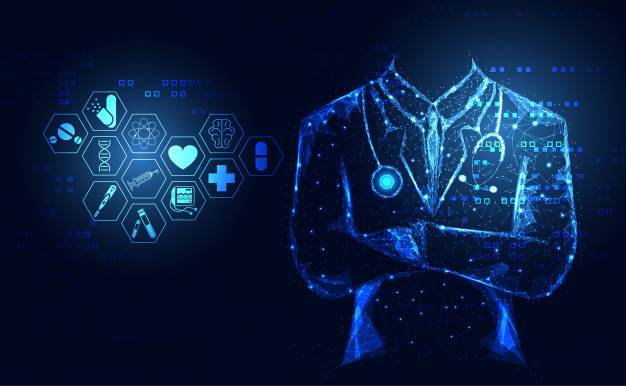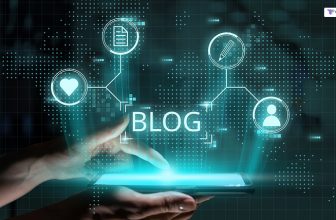
Technology is reshaping healthcare in the UAE; healthcare and tech are merging to improve services and care. Technology is one of the driving forces in the healthcare industry, for instance, in treatment and research. Various technologies are changing the way scientists develop new cures and treatments for patients.
Healthcare technology continues to grow and improve important roles in the industry. Tablets and Smartphones are now replacing traditional recording and monitoring systems in healthcare. You can now decide whether you want a face-to-face or virtual consultation.
What is Healthcare Technology?

Healthcare technology/health tech is using technology to improve healthcare services, boost hospital productivity, give insights to new treatments and medicines, etc. Technology is being incorporated in every to improve efficiency and quality.
Healthtech is the application of organized skills and knowledge in the form of medicine, devices, systems, and procedures designed to solve health problems. Information technology, pharmaceuticals, and biotechnology are some of the areas that have brought significant changes in the health sector.
How Technology is Transforming Healthcare in the UAE
Healthcare technology is reshaping healthcare in front of our eyes. Healthtech is evolving fast and transforming healthcare in the following ways.
Artificial Intelligence

Artificial intelligence (AI) is the activation of human intelligence in machines; they are programmed to mimic and think like humans. This term is also associated with any machines that have human-like traits like problem-solving and learning. Artificial intelligence’s ideal characteristic is its ability to reason and take action to solve a problem effectively. Also, AI benefits pharma manufacturing in a variety of ways, resulting in faster drug and device production.
Artificial intelligence can reshape healthcare completely; AI can perform many tasks that humans do faster, effectively, and at a lower cost. The Internet of Medical Things (IoMT) and AI help people to stay healthy. Technological apps help individuals to embrace healthier behaviors.
Artificial intelligence also helps healthcare experts to better understand the needs and patterns of patients. It also helps in the early detection of various diseases like cancer accurately. The increased use of consumer wearables, AI, and other medical devices can help caregivers to detect and monitor potential life-threatening conditions. You only have to visit a medical center in Dubai whenever necessary.
Healthcare Wearables
The future of healthcare and medicine is closely tied to patient empowerment. Wearables encourage proactive health; this is important to live along a healthy life. Most diseases and conditions are caused by a lack of activities/exercises; this is why your cardiologist in Dubai will encourage you to stay active.
Wearables are used to monitor the health of vulnerable individuals; abnormalities are detected before they become severe. They also keep you more engaged with your health. You can access real-time data that keeps you updated about your health.
These devices are used in the medical field to aid healthcare providers; they monitor patient data over a long time. This way, healthcare professionals understand issues affecting patients and use this data to make an accurate diagnosis. Wearables can also save money in healthcare this tech encourages better sleep, exercise, etc. This helps patients to live healthier and reduce pressure on the healthcare system.
Virtual Reality
Virtual Reality (VR) uses computer research to stimulate virtual environments; this allows you to interact with artificial 3D environments via electronic devices like screens, gloves, and goggles. VR gives you a realistic experience.
Virtual Reality can improve the teaching and learning experience in the healthcare sector. VR allows surgeons to stream operations worldwide; this allows medical students to be ‘present’ at the moment via their VR goggles.
Healthcare professionals can also use VR to relax patients prior to major procedures. Patients suffering from post-surgical, neurological, cardiac, and gastrointestinal pain can use VR to reduce pain stimuli. VR can also be beneficial during conferences for a Virtual-Reality experience. It offers 3D gamification and visualization to enhance audience engagement.
Augmented Reality
Augmented Reality (AR) enhances the ‘real world’ via sound, visual elements, sensory stimuli, etc., through technology. AR is different from VR; Virtual Reality happens in virtual environments, AR allows you to interact with the physical world in a more engaging and dynamic way.
AR allows medical experts to deliver personalized care, learn, and save lives. Augmented Reality can also be used in medical training and education. Surgeons can use 3D holograms and other useful software tools for training instead of traditional methods.
Nanotechnology
Nanotechnology is a research and innovation; it’s engineering, science, and technology implemented at the nanoscale. It is the study and application of tiny things. Nanotechnology has many benefits like delivering drugs effectively, delivering vaccines via patches and aerosols. It targets specific tissues and cells. It allows drugs to reach diseased cells while avoiding healthy tissues. Nanotechnology also is beneficial in drug release control.
Technology has revolutionized the healthcare sector in many ways that benefit healthcare workers and patients. Technology is not here to take over human jobs; it’s here to make diagnosis and treatment effective and accurate. Technology encourages patient involvement and helps healthcare workers to monitor patients’ conditions at the comfort of their homes.
Read Also:






